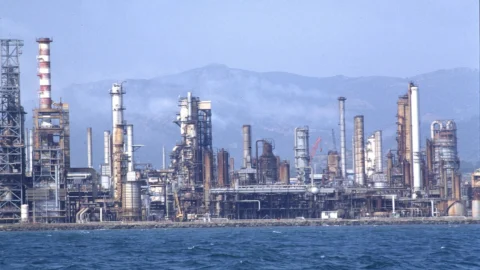Intesa Sanpaolo offers a financial solution to support the wine sector, which is heavily affected by the effects of the Covid-19 pandemic, despite having all the potential to overcome the difficult moment.
From a regulatory point of view, the road was paved by the "Cura Italia" decree. Technically, the "rotating pledge" allows for a precise evaluation of the stocks of wine for aging and for converting them into guarantees useful for obtaining new lines of credit. Companies can thus disinvest the precious heritage kept in the cellar, which will only become marketable after years.
The Intesa Sanpaolo project makes use of the collaboration of Federdoc, the national confederation of voluntary consortia for the protection of Italian wine names, and of Valoritalia, a leading company in the control activities on DOCG, DOC and IGT wines and wine control body organic and organic farming. The producers of DOC and DOCG - Barolo, Barbaresco, Franciacorta, Amarone di Valpolicella, Brunello di Montalcino, Bolgheri, Chianti Classico and Nobile di Montepulciano - will be able to access this initiative through the certification issued by Valoritalia. The protection consortia of the other numerous denominations present on the national territory and the relative control bodies may also be affected by the project. Intesa Sanpaolo's attention for the wine sector is in fact directed to all the approximately 400 DOC and DOCG who wish to collaborate with the Bank.
In the last thirty years, Italian wine has gone from a production system based on quantity to an economy that focuses on quality and value, betting on identity, links with the territory, certifications of origin. Nowadays Italy produces less wine, but this wine is worth much more. According to a comparison by the Intesa Sanpaolo Studies and Research Department, in 1986 77 million hectoliters were produced for a value of 1,3 billion euro, today the produced hectoliters are almost 50 million, 35% less, but the value is rose to 4,3 billion euros, more than triple.
2020 got off to a very favorable start, but there was already a collapse in the domestic market in March which reached a minimum in April (-40,3% compared to April 2019 for the broader beverage aggregate). Wine exports, on the other hand, held up until March, but from April they too slipped into negative territory, closing the six-month period at -3,4%.
The companies most penalized are those linked to the Ho.re.ca channel. (Hotellerie- Restaurant-Café), strongly impacted by the limitations imposed to maintain social distancing and by the blocking of leisure, tourist and business travel. The consequences were less relevant for operators relying on large-scale distribution or organized for online sales. The e-commerce channel, which grew a lot in 2020, however has a relatively small and insufficient weight to replace the sales lost in traditional sales channels.
“Developing this type of agreement in favor of companies that make Made In Italy great – says Francesco Liantonio, President of Valoritalia – is part of our commitment to protect denominations. Our wine excellences represent a priceless treasure, to be preserved. It is precisely our productions that save us in difficult moments like the one we are going through. Through our checks, we guarantee compliance with the production regulations and the organoleptic characteristics that allow our DOC, DOCG and IGT to be considered the most precious of coins".
For Riccardo Ricci Curbastro, President of Federdoc “The revolving pledge has ensured that consortia, institutions and banks collaborate for the real Italian economic recovery. This tool has proved to be essential in giving breathing space to our sector, severely hit by the pandemic, showing that the commitment made in recent years for the unity of the Italian wine supply chain has borne the desired results".





